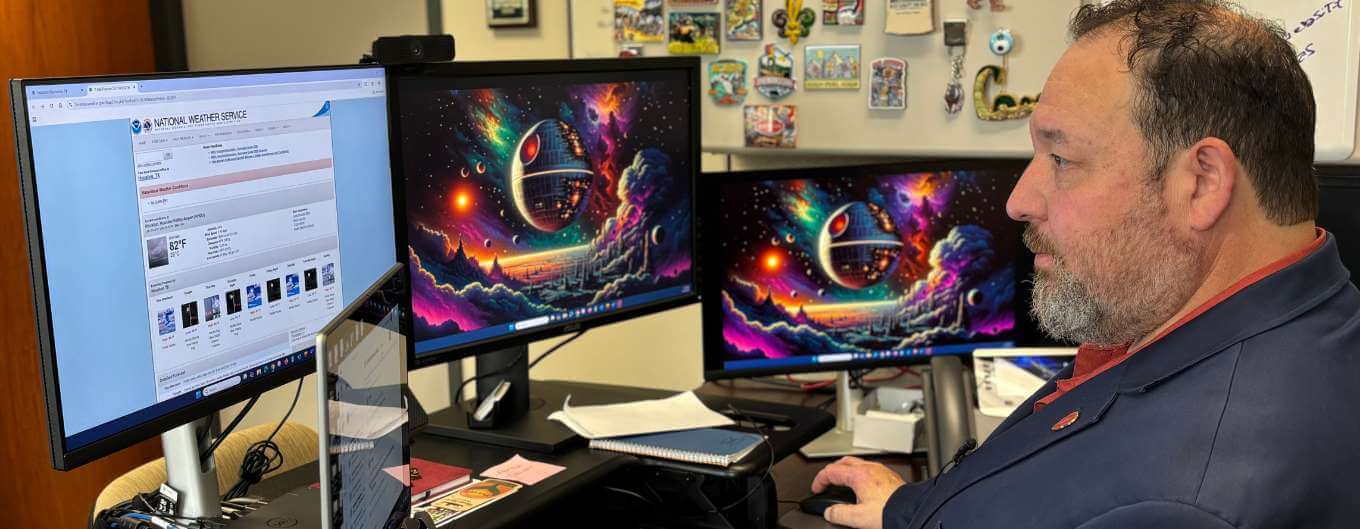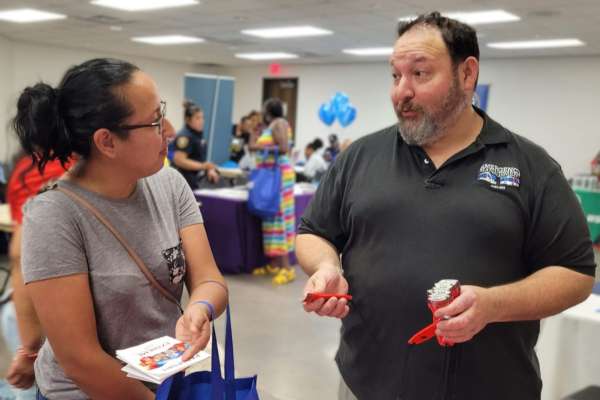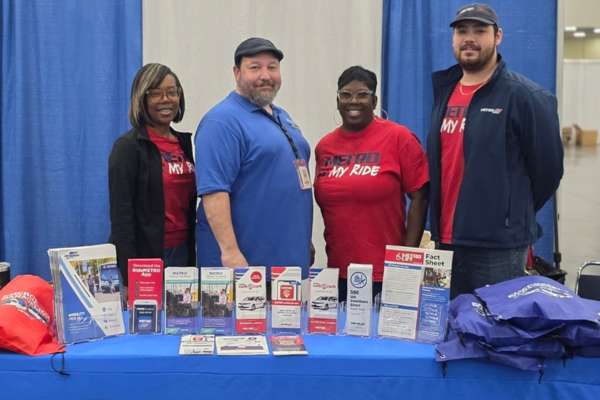May 2025
Meet METRO's 'Crisis Commander' Richard Herrera

From hurricanes to snowstorms and massive heatwaves, METRO has helped keep the Houston region moving, but also stepped up to support the community during times of crisis. But who is the one person METRO and community leaders rely on to help resume service when the going gets tough? Meet METRO’s Emergency Management Officer, Richard Herrera.
Richard’s journey with METRO began in 2010, when he started as a METROLift dispatcher while pursuing a degree in Safety Management at the University of Houston-Downtown. In 2012, he briefly worked for the City of Houston before returning to METRO in 2014 as an Environmental, Health, and Safety Officer. Throughout his time at the agency, he has worked closely with department heads, community leaders, and external agencies to develop strategies for resuming service quickly and safely after disasters.

Richard Herrera speaks to a resident about the importance of emergency preparedness.
“Relationship-building is essential in emergency management, and I take that responsibility to heart,” Hererra said. “As a Army veteran who has embraced a servant-leader mindset, I treat everyone with dignity, respect, and empathy. How often do I meet with partners? Daily, nights and weekends included. It is widely recognized that in the immediate aftermath of major emergencies, and disasters communities rely heavily on local resources and collaboration among regional partners.”
After a major event - such as the snowstorm that hit Houston in January - all hands are on deck at METRO. But all eyes are on Richard for the game plan. As a one-person emergency management, he coordinates across departments, acts as METRO’s liaison to the public, and continuously updates and adjusts crisis response strategies.
“We’ve developed emergency response and continuity of operations plans, all housed in the METRO library because relying solely on reactive decision-making when disaster strikes can quickly become overwhelming,” Herrera said. "Most tropical weather brings flooding and wind damage, meaning fallen trees and debris. In response, we mobilize personnel from Operations, Facilities, Safety, and other departments to assess roadway accessibility, clear and inspect buses and trains, check facilities, staff our control center, and activate emergency coordination through the Emergency Operation Center (EOC) at Houston TranStar.”
Whenever TranStar is “activated,” you’ll find Richard at the head of the conference table fielding calls, emails, and virtual meetings as he works side by side with regional partners to coordinate the recovery efforts.

Richard Herrera attends a conference with other METRO employees.
When he’s not managing active emergencies or meeting with regional officials, Richard makes it a priority to keep employees informed. He regularly sends agency-wide weather alerts, preparedness tips, and guidance on how to respond before, during, and after severe weather events. Even small steps, like an email, can go a long way in helping someone stay safe.
“I love what I do, but emergency response is always a team effort,” Herrera said. “One of the biggest challenges we face is the general misunderstanding of what emergency management entails. It often involves delicate support behind the scenes, requiring professionalism, calm, and alignment with METRO’s goals and mission, while helping regional leaders make critical, life-saving decisions.”

 Google Chrome
Google Chrome
 Safari Mac OS
Safari Mac OS
 Mozilla
Mozilla
 Microsoft Edge
Microsoft Edge